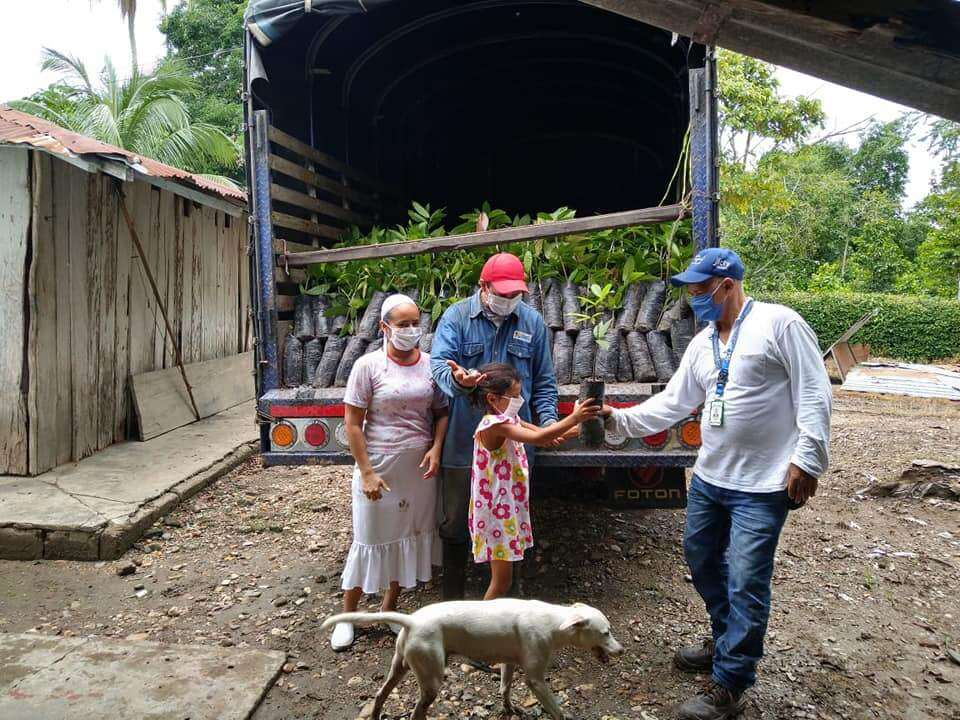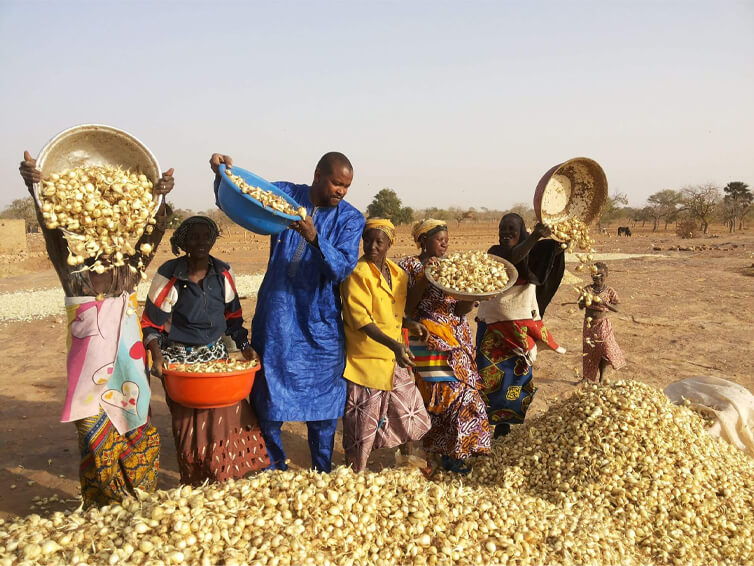Une lettre de Jim Cornelius, directeur général de la Banque canadienne de grains, et de Jean-Philippe Marcoux, directeur général de SOCODEVI.
The COVID-19 pandemic has spread to every corner of the globe—resulting in lost lives and livelihoods. We have all felt its impact.
This health crisis is threatening to drive millions of already vulnerable people into a food crisis and even starvation, setting us even further from the global goal to end hunger by 2030. Canada should respond urgently to this unfolding global humanitarian crisis both with immediate assistance and resilience-building projects.
In Canada, millions of Canadians have lost their jobs or seen reductions in income. Food banks are seeing the demand for their services surging. Even with our high functioning food system, consumers and farmers are seeing disruptions to the supply chains.
Globally, the impact is much greater as approximately 135 million people already faced crisis levels of food insecurity—before the pandemic hit.
Sadly, 2020 could see the worst humanitarian crisis since the Second World War. The UN’s World Food Programme is warning that the number of people experiencing crisis levels of hunger is likely to double by the end of the year due to COVID-19.
It will be those who are already vulnerable— women and children, refugees and displaced people, laborers who rely on daily wages to put food on the table, the elderly, people with disabilities, indigenous communities—who will be pushed further into hunger.
Canada has already taken important first steps to respond globally, including ensuring vital humanitarian programs are not disrupted and providing an additional $160 million mostly to international institutions for urgent humanitarian responses.
We will need to do much more—in coordination with other donor countries—to respond to both short and long-term hunger globally. We know Canadian officials are actively exploring options and putting in place additional plans.
The coronavirus and the instability it is creating knows no borders. Protecting those most vulnerable around the world will help protect health, prosperity, and stability for all of us.
This impending food crisis is particularly alarming for women and girls. They already bear the brunt of hunger, often eating less in difficult times to feed others. They make up the majority of displaced people. And they do most household work. COVID-19 will increase their burden of unpaid labor, as they will need to put food on the table under difficult conditions, while also increasing care for vulnerable or sick family members. As seen here in Canada, more financial stress and confinement measures will increase gender-based violence.
Canada’s response must ensure food gets to those in crisis now. That includes increasing support for humanitarian food assistance and social safety nets.
Canada should also work to protect and strengthen food supply chains, helping households access the food they need, and enabling small-scale farmers to access inputs and sell critical food to feed their communities and earn a livelihood.
SOCODEVI and Canadian Foodgrains Bank are among numerous Canadian agencies already responding to hunger needs amid the health pandemic. The Canadian Foodgrains Bank is ramping up distribution of emergency food assistance for refugees and families already in crisis, and continuing to support farmers in long term food security efforts.
SOCODEVI is working with cooperatives and associative businesses to ensure farming families in developing countries can promptly access inputs, markets, and financial services in order to secure stable, decent incomes for now and the future.

Canada should work with Canadian civil society organizations with grassroots partners in hard-hit countries to strengthen local solutions, and with multilateral agencies to ensure large-scale coordinated responses.
The aid to combat COVID-19 should not come at the expense of existing programs but rather be made in addition to current commitments.
In the longer term, Canada should also help develop inclusive and resilient food systems so vulnerable communities will be much more prepared for future crises—be they pandemics, climate change or economic shocks.
The federal government is rightfully working to ensure Canadians have adequate income and food supplies to get through this crisis. Canada can also do its part so vulnerable communities everywhere can survive—so we can all prosper in years to come.
